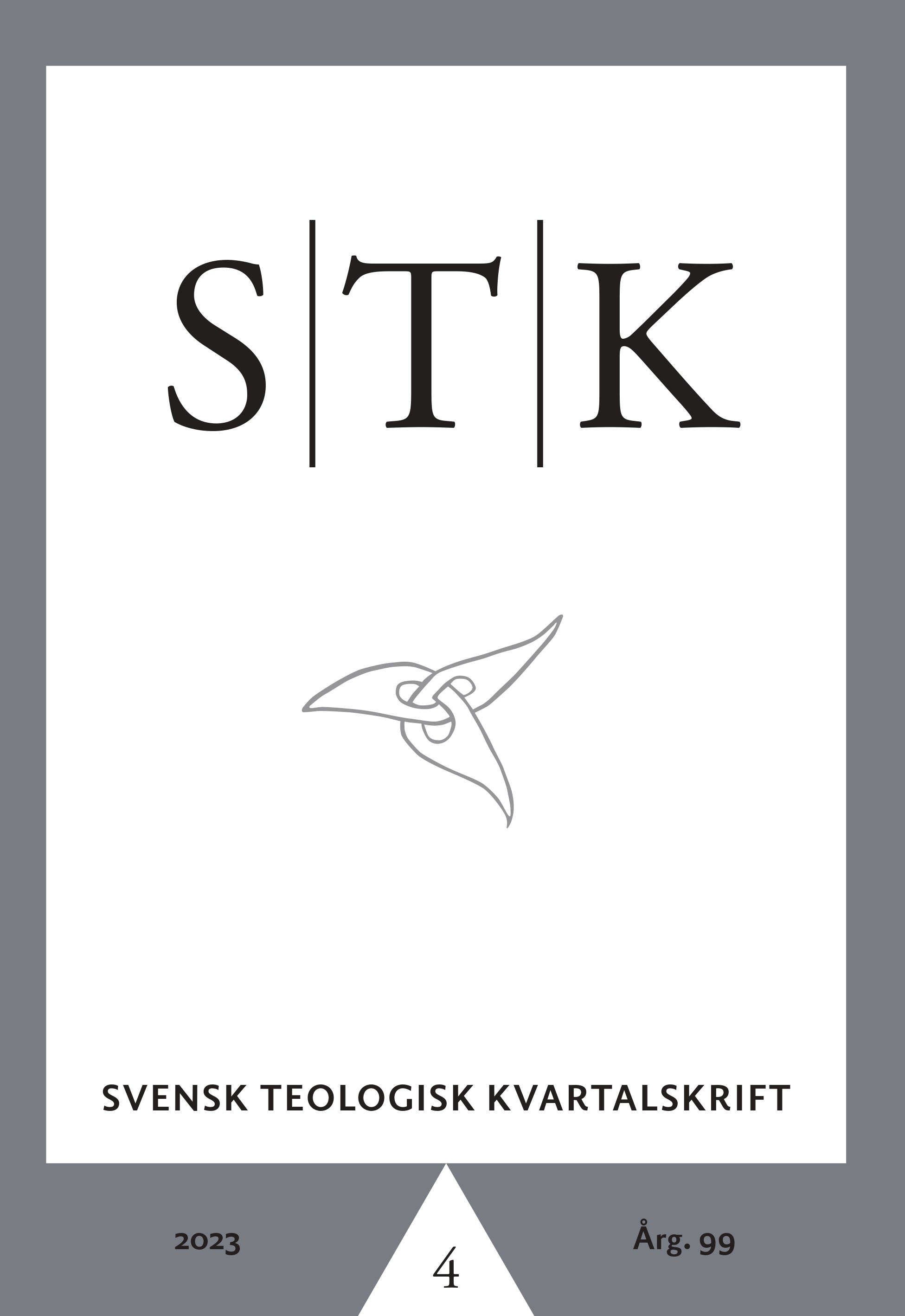Traditionens gränser
Teologiska reflektioner över al-Ghazālīs Fayṣal al-tafriqa
DOI:
https://doi.org/10.51619/stk.v99i4.25766Abstract
This article explores the themes of tradition and renewal in Islamic theology through a reading of Abū Ḥāmid al-Ghazālī's Fayṣal al-tafriqa bayna l-islām wa-l-zandaqa ("The Decisive Criterion for Distinguishing Islam from Heresy"), a classic work about the boundaries of theological tolerance in Islam. The article begins by discussing descriptive and normative usages of the term "Islamic" and then moves on to reflect on al-Ghazālī's distinction between revelation and interpretation, his "rule of interpretation" (qānūn al-taʾwīl) and his emphasis on the importance of ethical and spiritual virtues for all intellectual activity, including theology, in relation to questions concerning tradition and renewal. It draws on Alasdair MacIntyre's notion of tradition as "an historically extended, socially embodied argument" and argues that attempts at theological renewal must, of course, be rooted in the foundational texts of the overarching Islamic tradition, mainly the Qur'an and the hadith corpus, but also in the historically extended and socially embodied arguments of its subtraditions, such as the Ashʿarī and Māturīdī schools of theology. The purpose of the article is to contribute to the ongoing discussion about theological renewal in the Islamic tradition and to the ongoing discussion about normative studies of Islamic theology at European universities by putting al-Ghazālī in dialogue with MacIntyre.
Downloads
Published
Issue
Section
License
Copyright (c) 2023 Tobias Andersson

This work is licensed under a Creative Commons Attribution-NonCommercial-NoDerivatives 4.0 International License.


